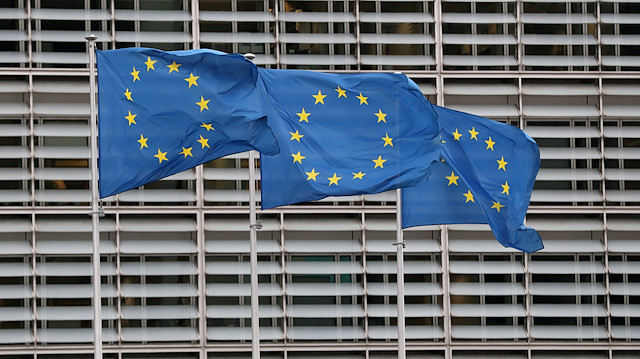
Leaders gather in Brussels to discuss bloc’s next seven-year budget amid deep tension
European heads of states and governments began discussions on the EU’s next seven-year budget at an extraordinary summit Thursday.
European Council President Charles Michel, determined to find a compromise, individually negotiated with all the 27 leaders in past weeks and produced a refreshed proposal Friday.
The new proposal limits the new budget to 1.07% of the EU27's gross national income to please northwestern European countries committed to budgetary discipline, while slightly raising the share of cohesion and agricultural policy in the entire budget and reduces the public administration costs for the sake of less wealthy eastern and southern member states.
European Commission President Ursula von der Leyen expects “long, long and though negotiations” to find a compromise between the diverging interests of member states.
But she is convinced Europe needs a “modern budget” that has a strong emphasis on climate protection and digitalization because “Europe needs it to win the future.”
One of the main divisions stands between the so-called frugal camp, composed of Austria, Denmark, the Netherlands and Sweden and the rest of member and EU institutions.
“You need to modernize the budget, not just add more money to it,”, Sweden’s Prime Minister Stefan Löfven told the media.
He thinks the EU budget needs to define its priorities and spend “more on digitalization, modern industrial policy, climate change” and less on cohesion and agriculture policy.
On the other side, the self-declared “Friends of Cohesion” group of southern and eastern countries insist on preserving the share of EU subsidies, arguing economically more developed states should show more solidarity with the less developed ones.
“There’s no agreement from us to have a revolution of the structure of the budget and to decrease it,” said Polish premier Mateusz Morawiecki.
He also called budget negotiations “the most difficult in history” because Brexit left a €75 billion ($81 billion) gap in the common budget while member states cannot agree on the main titles of the budget.
Despite stressing France’s strong commitment to preserving agriculture subsidies, French President Emmanuel Macron seemed the most optimistic among the European leaders. “It might take days, but we are on the way to find a compromise at this summit,” he said.


